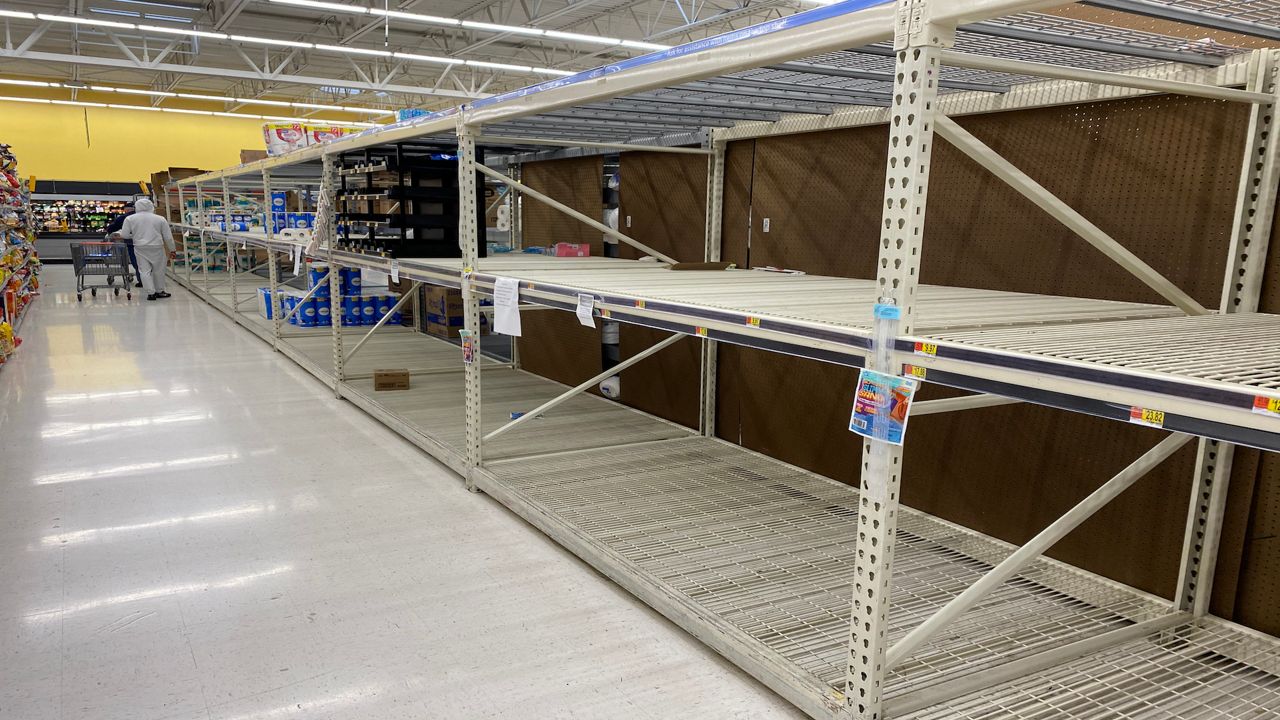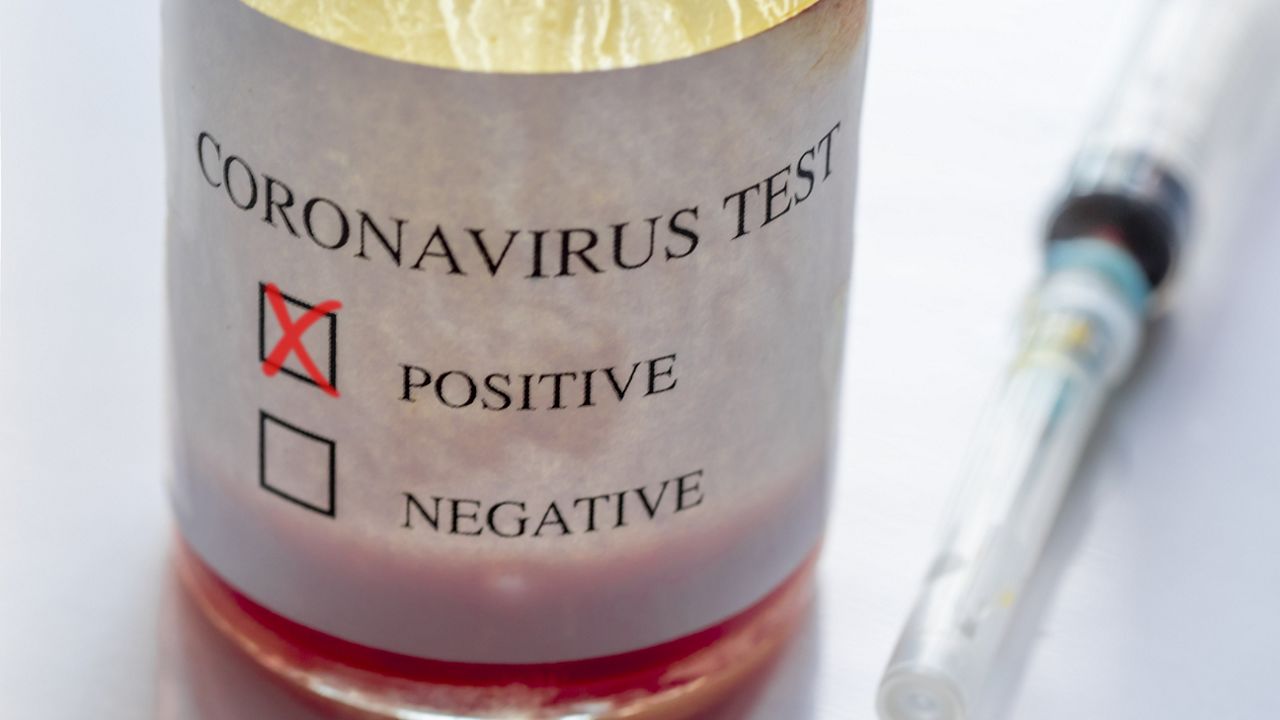LEXINGTON, Ky. – A worsening COVID-19 pandemic that has created more restrictions just before the Thanksgiving holiday has people again stockpiling certain products resulting in empty shelves and some grocery store chains placing limits on purchasing certain items.
What You Need To Know
- Limits being placed on toilet paper, hand sanitizer, paper towels
- Experts say second wave not as bad as first
- Sales of premium products increasing as well
- Election unrest contributing to purchases
Kroger issued a statement Monday, Nov. 16, announcing a “two per customer” limit on toilet paper, paper towels, disinfecting wipes, and hand soap in-store and online.
Other grocery retailers, such as H-E-B, The Giant Co., and Wegmans have imposed similar purchasing limits, according to an article in the Louisville Courier-Journal. Along with the COVID-19 surge and the upcoming holidays, potential unrest from the Nov. 3 election has spurred Americans’ urge to stockpile food and supplies. USA Today reported in October that a joint poll by the Sports and Leisure Research Group, Engagiousm, and ROKK revealed more than half of Americans had begun or planned to stockpile food and other essentials.
Supermarket News, an industry news source, reports more than half of U.S. consumers are mulling resupplies of groceries and essential items stockpiled at the outbreak of COVID-19, new research from Inmar Intelligence finds.
Winston-Salem, North Carolina-based Inmar announced recently that 57% of shoppers surveyed are now deciding whether to replenish their stock of goods gathered at the start of the coronavirus pandemic; another 54% of respondents said they aim to be prepared by always having a stockpile of key items going forward in case of safety issues and supply outages at stores.
Even though a large percentage of people surveyed said they still have stored-up supplies from the spring, they are adding to it. As in the first COVID-triggered run on grocery stores in March, cleaning and hygiene products are atop consumers’ lists of items to stockpile. The top two products cited by survey respondents were toilet paper (67%) and hand sanitizer (57%), which Inmar said reflects shoppers’ experience of these items often being unavailable early on in the pandemic.
Other products that consumers have stockpiled or plan to stockpile include paper towels (cited by 52% of those polled), disinfecting wipes (53%), and canned goods (54%). Around 45% of respondents said the second round of stockpiling will include items not in the first round, such as frozen dinners, pasta, snacks, and cleaning products.
CNBC reports people are not just stockpiling essentials, with many gravitating toward high-end coffee, cheese, and other products. Sales of premium and superpremium packaged goods grew by 1.7% at retailers year over year for the 26 weeks ended Oct. 4, according to data from retail insight firm IRI. The small percentage is a shift in the multibillion-dollar consumer packaged goods industry, where rivals compete at just tenths of a percentage from one another.
Grocers began stockpiling in late-October, according to an article in the Wall Street Journal. Associated Food Stores recently started building “pandemic pallets” of cleaning and sanitizing products so it always has some inventory in warehouses, said Darin Peirce, vice president of retail operations for the cooperative of more than 400 stores. The company is establishing protocols so it can better manage scenarios of high demand.
“We will never again operate our business as unprepared for something like this,” he said.
Industry executives told the Wall Street Journal they do not think the potential wintertime burst in grocery demand will be as extreme as it was in March, when people panic-shopped, fearing grocery-store closures or food shortages.








